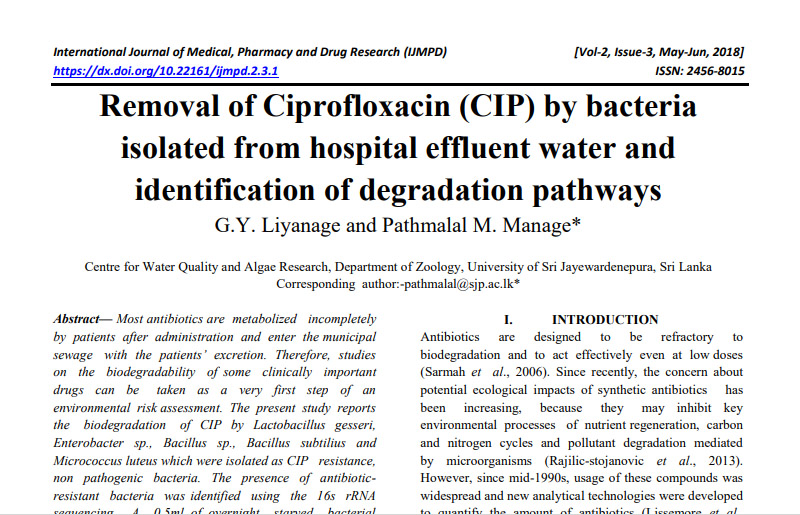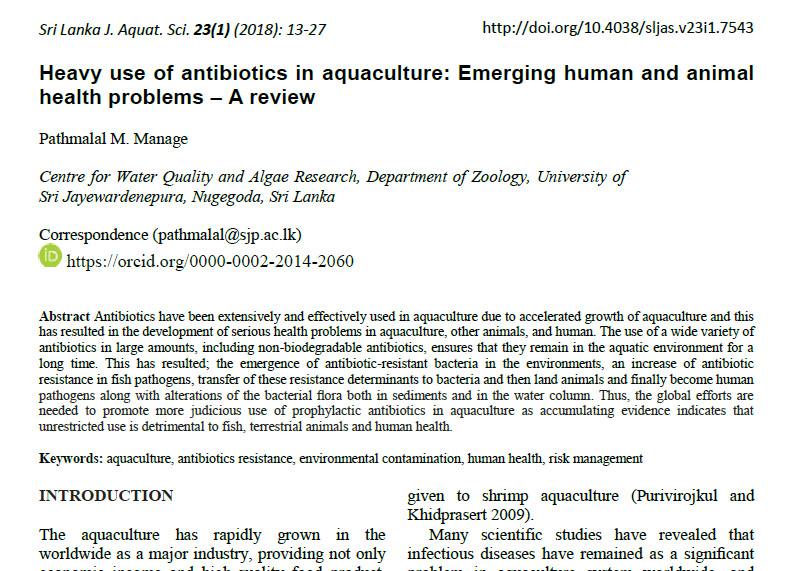Author: G.Y. Liyanage, Pathmalal Manage
Journal: International Journal of Medical, Pharmacy and Drug Research (IJMPD)
Most antibiotics are metabolized incompletely by patients after administration and enter the municipal sewage with the patients’ excretion. Therefore, studies on the biodegradability of some clinically important drugs can be taken as a very first step of an environmental risk assessment. The present study reports the biodegradation of CIP by Lactobacillus gesseri, Enterobacter sp., Bacillus sp., Bacillus subtilius and Micrococcus luteus which were isolated as CIP resistance, non pathogenic bacteria.



